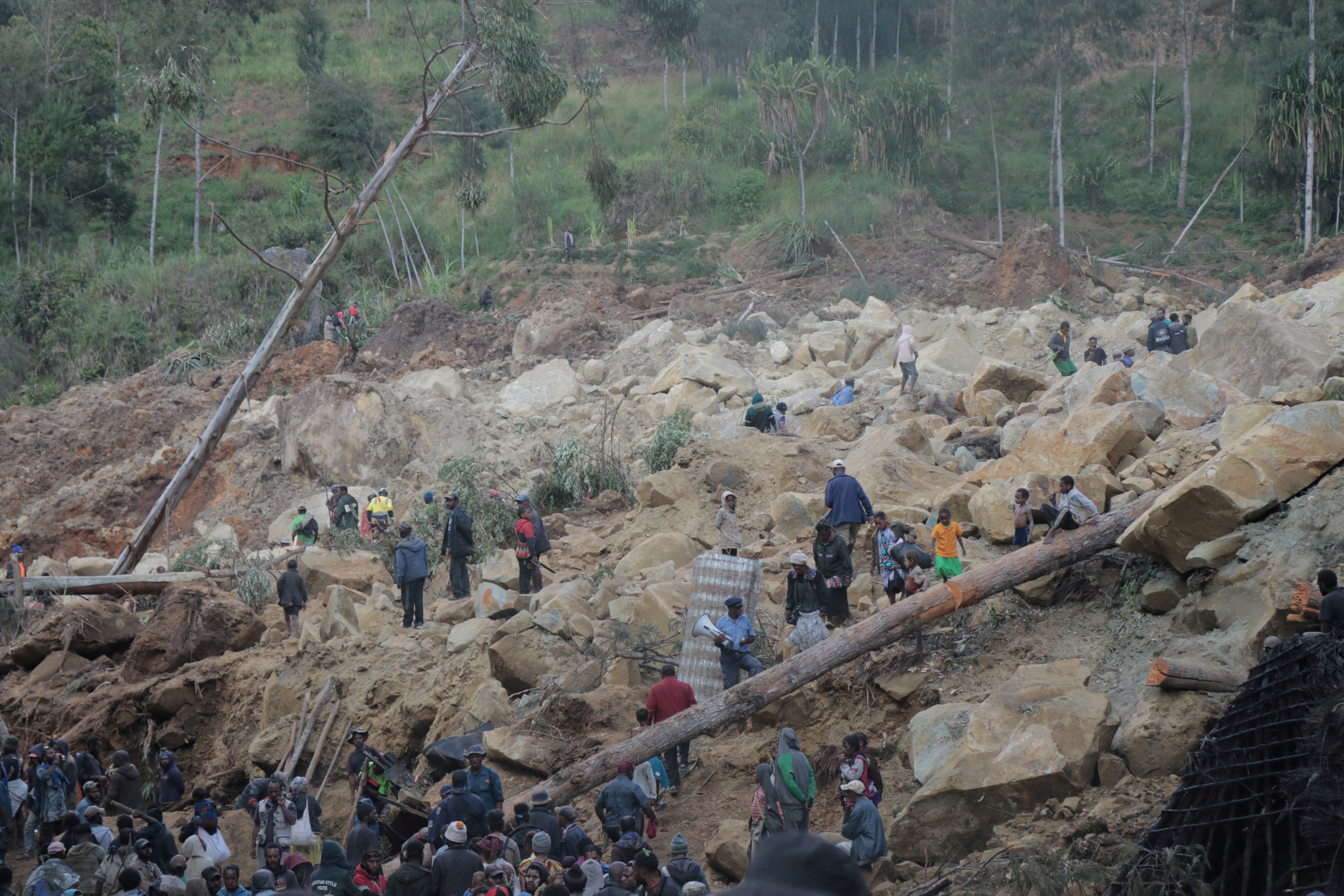More than 2,000 people could be buried alive by a massive landslide in Papua New Guinea last week, the government said on Monday, as treacherous terrain and the difficulty of getting aid to the site raises the risk few survivors will be found.
The National Disaster Centre raised the number suspected buried to 2,000 in a letter to the U.N. released on Monday but dated Sunday. A separate U.N. agency put the possible death toll much lower, at more than 670 people.
The variance reflects the remote site and the difficulty getting an accurate population estimate. PNG’s last credible census was in 2000 and many people live in isolated mountainous villages.
The landslide crashed through Yambali village in the country’s north at around 3 a.m. on Friday while most of the community slept. More than 150 houses were buried beneath debris almost two stories high. Rescuers told local media they heard screams from beneath the earth.
“I have 18 of my family members being buried under the debris and soil that I am standing on, and a lot more family members in the village I cannot count,” resident Evit Kambu told Reuters. “But I cannot retrieve the bodies so I am standing here helplessly.”
More than 72 hours after the landslide residents are still using spades, sticks and their bare hands to try and shift the debris and reach any survivors.
Heavy equipment and aid has been slow to arrive due to the remote location while tribal warfare nearby has forced aid workers to travel in convoys escorted by soldiers and return to the provincial capital, roughly 60 km (37 miles) away, at night.
Eight people were killed and 30 houses burnt down on Saturday, a U.N. agency official said. Aid convoys on Monday passed the still smoking remains of houses.
The first excavator only reached the site late on Sunday, according to a U.N. official. Six bodies have been retrieved so far.
Contact with other parts of the country is difficult due to patchy reception and limited electricity at the site.
Many people aren’t even sure where their loved ones were when the landslide hit because it’s common for residents to stay at the homes of friends and relatives, according to Matthew Hewitt Tapus, a pastor based in Port Moresby whose home village is roughly 20km (12 miles) from the disaster zone.
“It’s not like everyone is in the same house at the same time, so you have fathers who don’t know where their children are, mothers who don’t know where husbands are, it’s chaotic,” he told Reuters by phone.
Prime Minister James Marape’s office said the disaster was being handled by PNG emergency authorities and Marape was in the capital Port Moresby preparing for the return of parliament on Tuesday, where he faces a no-confidence motion.
RESCUE WORK GOING SLOWLY
Even when rescue teams can get to the site, rain, unstable ground and flowing water is making it extremely dangerous for residents and rescue teams to clear debris, according to Serhan Aktoprak, the chief of the U.N. migration agency’s mission in PNG.
There is still a risk the soil and debris could shift again and more than 250 homes have been abandoned as officials encourage people to evacuate, he said. More than 1,250 people have been displaced.
Some local residents also don’t want heavy machinery and excavators entering the village and interrupting the mourning, he said.
“At this point, people I think are realising that the chances are very slim, that anyone can basically be taken out alive,” he said.







Click here to change your cookie preferences